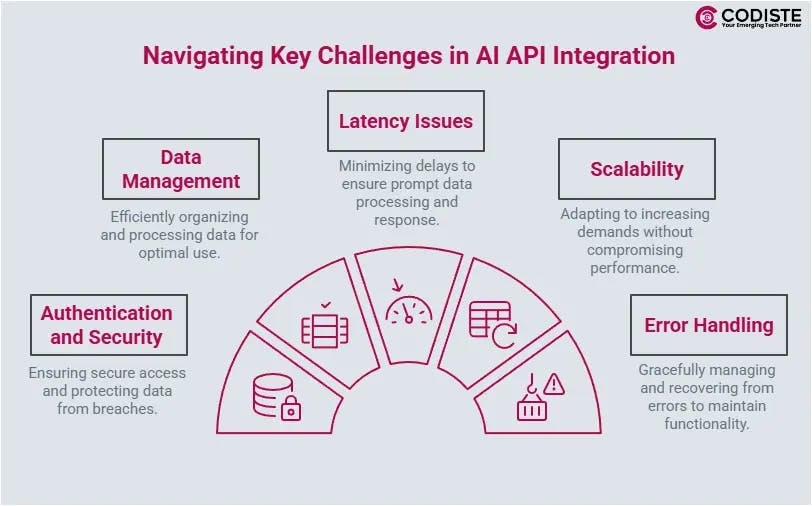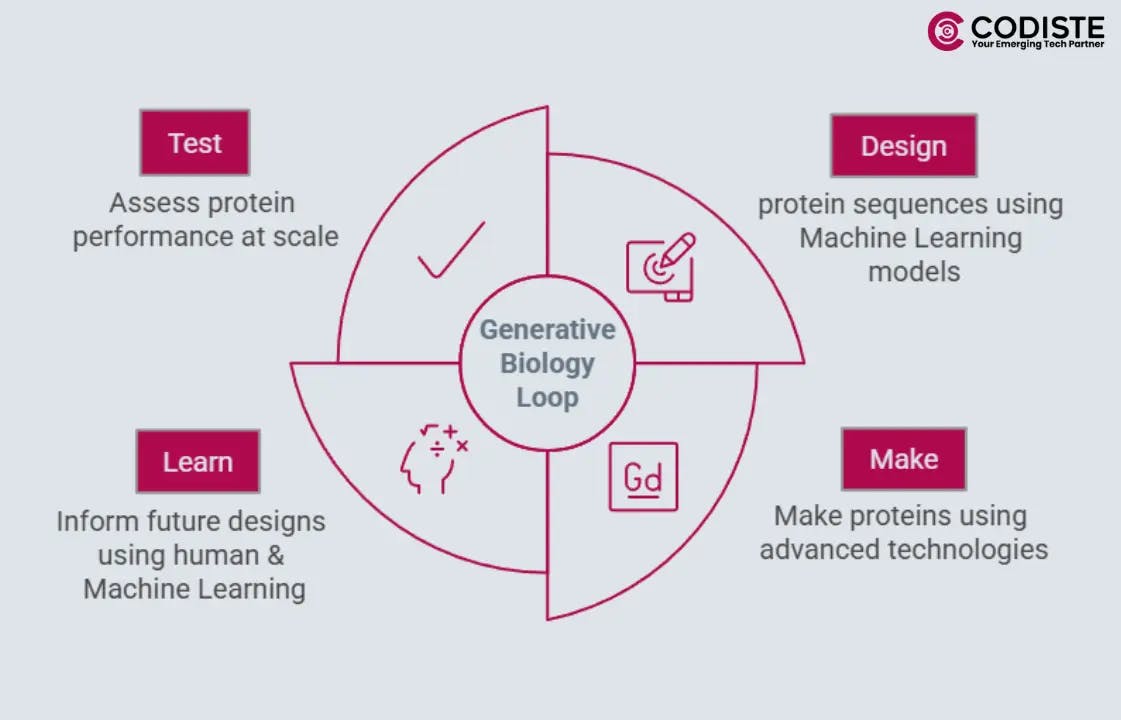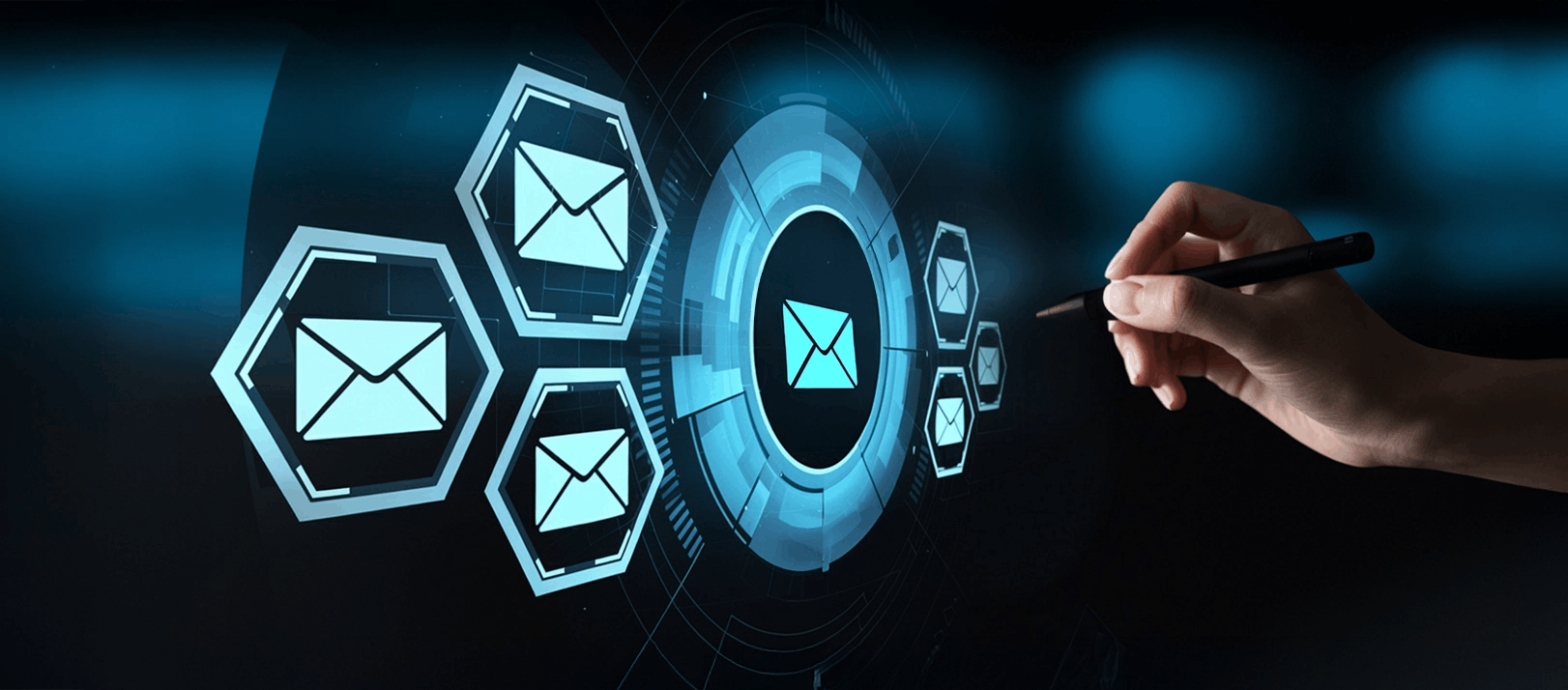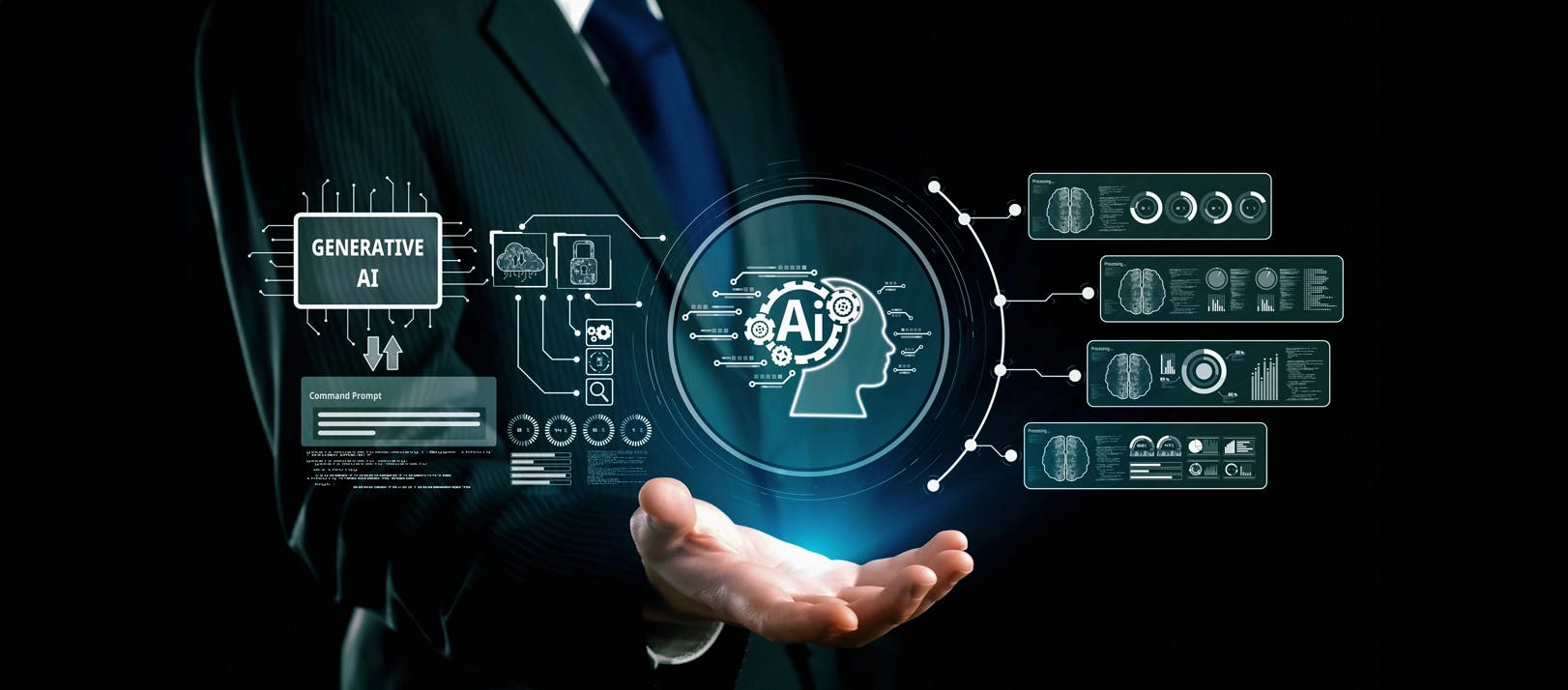
,
Generative AI has made an incredible impact on tons of industries by providing computers with the capability of generating human-like text, codes and even images. It is in fact applications such as OpenAI's GPT models that are being utilized in every area from content creation to customer service.
The forecast that the entire generative AI market, which is worth $109.37 billion, will ascend to $136.7 billion by 2030 with a compound annual growth rate (CAGR) of 36.7% is the main reason enterprises strive to benefit from these tools. Nevertheless, there are several challenges in AI API integration into applications.
API integration is the real base or main part that can let us use generative AI in the best possible way. Not following a straight process, developers may encounter problems such as low efficiency, scalability problems, or security vulnerabilities. In this article, we will showcase how you can successfully deal with these issues. Therefore, it enables you to create the best out of generative AI APIs.
An Overview on Generative AI APIs for Developers
The global market size for AI in education is set to be worth USD 21.13.99 billion by 2028, with a CAGR of 39.7% from 2023 to 2028. AI in corporate training and education is all set to transform conventional methods of teaching by making them more personalized, and efficient. AI-based LMS solutions allow for individual learning paths, automated content suggestions, and real-time analytics thus enabling organizations to configure learning to each person's needs.
Steps to Prepare for Generative AI Implementation
Generative AI API will be unsuccessful when the project specification and necessary tools are made clear to you.
- The first step should be defining the project’s goal. Is it about chatbot development, workflow automation or making content better?
- After you have determined what you want to achieve, and you can select the appropriate API. Some elements to judge these components include the function that the API conducts, the price and the documentation accuracy.
- Another important step is to prepare the development environment for the setup. As a basic principle, you should get all the necessary programming languages such as Python or JavaScript.
- Now, install the required libraries and/or SDKs for the corresponding API you intend to work with. Postman and other testing tools can assist in verifying API requests to ensure that they are accurate and carry out the right things.
All of these practices form the basis for the successful generative AI API integration .
5 Common Challenges in AI API Integration and Solutions
1. Addressing Authentication and Security Issues
Developers encounter secure authentication as one of the common AI integration problems. The majority of APIs need a secret key or a token for verification. An incorrect implementation can result in unauthorized usage or failed requests.
One solution is to use secure authentication methods such as OAuth2 technologies and to store API keys in a secure manner like in environment variables. You should never embed sensitive information into the codebase as it could potentially cause security weaknesses.
2. Managing Data In an Efficient Way
Generative AI is not usable at all without data. It can range from dataset training or using an API to encode permanent input data. It is tough to apply efficient methods while handling large data amounts if data sets are not optimized for either storage or retrieval.
The use of file size reduction techniques through means of compression and the encryption of sensitive data ensures the combination of efficiency and security. In this way, you can further speed up responses by pre-caching the data that is accessed frequently that lowers calls to the API of the same kind and leads to an overall improvement.
3. Overcoming Latency Issues
Latency is one of the common AI API challenges in generative AI API integration in the real-time apps. Users may get frustrated when waiting for the problem to be resolved. As a result, they get bad experiences.
To solve this problem, developers could optimize API calls by decreasing the size of payloads or reusing existing connections. The other effective way is to use edge computing so that there is no delay in access to data. These steps will lead to the precision and trustworthiness of an application.

4. Scaling for High Demand
As the number of apps being built increases, solving scalability issues in AI APIs becomes more important. Generative AI APIs are consuming a lot of resources; therefore, such scalability should be considered a top priority. The use of load balancers and distributed systems can help to organize the traffic.
Caching solutions like Redis or Memcached are also highly effective and this can be done by minimizing redundant API calls. Consistently tracking your system's performance will let you recognize and correct bottlenecks before the users face these problems.
5. Handling Errors Gracefully
Mistakes are a fact of life when APIs are concerned, but how you address them is a significant factor. Full-featured logging and monitoring are prerequisites for super-quick bug detection, apart from other benefits.
Explaining error messages allows developers to get to the core of the problem, thus facilitating faster troubleshooting. Timely notifications about bugs of a critical nature being set up will significantly reduce the recovery time, leading to quick response. Besides, establishing redundancy means the system will remain operational during temporary breakdowns due to automatic repair of failures.
Let us help you tackle API challenges, improve efficiency, and build robust AI solutions.
Generative AI Integration Use Cases in Various Industries
Delta Airlines
Delta Airlines is an excellent instance of how the generative AI API can be used to increase the satisfaction of customers. They adopted an AI chatbot by the name "Ask Delta," which customers can use to find flights, check-in and track their baggage. The chatbot offers the customer a direct and helpful solution, which in turn reduces the workload of their agents. After they began to use this technology Delta found a 20% reduction in the traffic to the call center, which further emphasizes the integration's effectiveness.
Pharmaceuticals
Amgen and Insilico Medicine, among others, are among the companies in the pharmaceutical industry utilizing generative AI design solutions for protein medicine. For quite some time, folding protein has been a hurdle in the work of biologists. Researchers are now able to make it better by applying generative adversarial networks (GANs) and deep learning models to predict and understand protein structures.
The introduction of this technology means that it is no longer necessary to spend a long time finding and developing the best drugs for each patient. Thus, it increases the speed and accuracy of drug development contributing to better patient outcomes.

Manufacturing
Autodesk and Creo, popular manufacturing companies, are using generative AI for physical object design. This technology is ideal for machine parts production and components for bigger systems and it often uses methods like 3D printing and computer-controlled machining. Generative AI tools can make the production process more optimized and quicker. Thus, production lines can now save more money. It also helps to generate less waste, using a smaller number of parts and speeding up the manufacturing process. It leads to a considerable increase in overall efficiency and effectiveness.
Healthcare
Generative AI has significantly changed how the healthcare sector operates. AI models check medical images and look for patterns that would be overlooked by doctors. This technological development enables the discovery of new medications, giving assurance on the diagnoses of different diseases. By integrating generative AI, healthcare organizations can provide their patients with quicker and more effective treatments.
Generative AI-based platforms like Insilico Medicine's "GENERAL" (Generative Tensorial Reinforcement Learning) platform can be used to design new drugs for diseases like cancer and fibrosis by analyzing vast amounts of molecular data. This makes the whole drug research and development process more quick and efficient.
Conclusion
Generative AI APIs are incredible Generative AI tools for developers that can modify applications in different sectors. Connecting them, nevertheless, involves planning as well as resolving some of the most common problems. By taking into account problems like authentication, data handling, latency, scalability and error management, businesses can use the genuine features of these APIs.
Building robust generative AI systems is going to be challenging yet interesting. As these systems enable real-time processing and the understanding of natural language that goes beyond the present limitations. Staying updated about the best practices by using caching, very precise encryption and coding of applications that run high-end authentication procedures is very important. This will make your applications not just functional but also scalable and secure.
Codiste is the best AI development company for building AI from scratch or integrating AI API into your Gen AI development projects. Codiste will help anything related to Generative AI API development, whether you are struggling with AI API integration or have innovative ideas, through their expertise. Contact us today to find and implement the right AI model that can make a big difference in your life.



AI Powered Email Marketing: A Comprehensive Guide
Know more
How Agentic AI Development is Powering Next-Gen SaaS Startups
Know more
Agentic AI Terminology Explained: Frameworks, Workflows, Studios, and More
Know more
